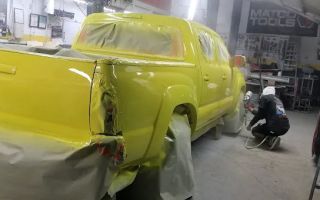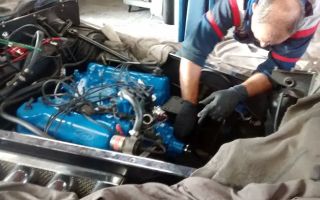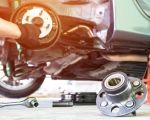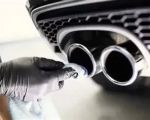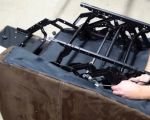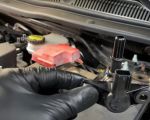- how-to-prepare-your-car-for-a-long-tow–initial-checks-to-start
- understanding-long-distance-towing–what-your-vehicle-faces
- car-preparation-steps–protecting-your-interior-and-exterior
- mechanical-checklist–ensuring-your-vehicle-is-tow-ready
- what-to-remove-before-a-long-tow–items-drivers-often-forget
- real-life-examples–drivers’-long-tow-experiences
- why-professional-help-matters–how-experts-improve-safety
How to Prepare Your Car for a Long Tow – Initial Checks to Start
When learning how to prepare your car for a long tow, the first step is understanding what the vehicle will experience during the process. A long-distance tow puts your car through bumps, vibrations, weather exposure, and extended periods of stationary suspension. Starting with a clear inspection helps prevent damage and ensures a smoother trip.
Many drivers only think about the tow after their vehicle has broken down. Yet, planning ahead—especially for seasonal moves, cross-country relocations, or transport to a repair shop—can make a huge difference. A quick initial walkthrough allows you to spot leaks, loose parts, or issues that could worsen during towing.

Pick Your Part - Help Yourself
1232 Blinn Ave, Wilmington, CA 90744, USA
Understanding Long-Distance Towing – What Your Vehicle Faces
A long tow is more than simply pulling a car from point A to point B. It involves mechanical strain, securement pressure, environmental stress, and potential road hazards. Knowing what your car faces helps you prepare better.

Pick Your Part - Greer
13054 E Wade Hampton Blvd, Greer, SC 29651, USA
1. Constant vibration and movement
The tow truck’s suspension absorbs some shock, but your vehicle still experiences vibration. Loose items, unsecured components, and fragile accessories may get damaged if not handled ahead of time.
2. Wind, rain, dust, and temperature changes
Vehicles transported over long distances are exposed to the elements. Even if your car is covered, wind lift and moisture can still affect it. Protecting vulnerable areas reduces long-term wear.
3. Pressure on tires and suspension
Tow straps, chains, and wheel lifts place specific pressure points on your vehicle. Making sure your tires and suspension are stable prevents misalignment or tire deformation upon arrival.
4. Risks from improperly secured loads
The biggest danger in long tows occurs when the vehicle isn’t secured correctly. Professional towing companies like Rescue & Towing reduce this risk by using high-quality equipment and safety procedures.
Car Preparation Steps – Protecting Your Interior and Exterior
If you’re wondering how to prepare your car for a long tow effectively, start with protecting what’s inside and outside the vehicle. This preparation prevents unnecessary wear and ensures your car arrives in the same condition it left.
1. Clean out the interior
Loose items become projectiles during tow-induced vibration. Remove water bottles, electronics, bags, toys, and anything that might bounce around.
2. Secure or remove accessories
Roof racks, antennas, spoilers, and aftermarket add-ons can loosen or detach during transport. Either remove them or secure them tightly.
3. Protect sensitive areas
Cover leather seats and dashboards if the vehicle might be exposed to heat or sun during the trip. A breathable protective cover is ideal.
4. Close all windows and sunroof fully
A cracked window can let in dust or moisture. This step is simple but often overlooked by drivers in a hurry.
Mechanical Checklist – Ensuring Your Vehicle Is Tow-Ready
Long-distance towing places unique strain on mechanical parts. Following this checklist helps ensure your vehicle is ready for a safe tow.
1. Check for fluid leaks
Leaks can worsen while the vehicle sits at an angle or moves on a flatbed. Inspect underneath the car for oil, coolant, or transmission fluid drips.
2. Put the vehicle in the correct gear
Automatic transmissions should be in park, manual transmissions in neutral. Incorrect gear selection increases strain during towing.
3. Ensure tires are properly inflated
Flat or under-inflated tires make the vehicle harder to secure. Inflate them to the manufacturer’s recommendation to protect the wheels and suspension.
4. Disable alarms or anti-theft systems
Alarm systems can trigger repeatedly during towing vibrations. Turning them off prevents unnecessary battery drain.
What to Remove Before a Long Tow – Items Drivers Often Forget
When thinking about how to prepare your car for a long tow, most drivers remove obvious valuables but forget smaller, important elements. These items should always be removed:
1. Toll tags and parking passes
Highways and scanners can accidentally charge your account if they detect your tag while on a tow truck.
2. Custom electronics
Dash cams, GPS units, and plug-in devices often get lost or damaged if left inside.
3. Important documents
Insurance cards, registration papers, and personal papers should never stay in the glove box during long transport.
4. Loose license plates or temporary tags
Strong wind can rip off poorly secured plates during transport.
Real-Life Examples – Drivers’ Long Tow Experiences
Drivers across the country have shared stories that highlight why proper preparation matters. One driver relocating from Florida to Colorado described how a forgotten cup of coffee exploded during the trip, leaving stains that were nearly impossible to remove. Another driver learned the hard way that leaving the car alarm on resulted in a completely drained battery upon arrival.
These experiences show the importance of taking a few minutes to prepare your car for a long tow, especially when the unexpected can turn a simple trip into a complicated mess.
Why Professional Help Matters – How Experts Improve Safety
Long-distance towing isn’t something you want to leave to chance. Professionals know how to secure your car based on its model, ground clearance, tire size, and weight distribution. They also have the correct equipment to avoid damage during loading, transport, and unloading.
Rescue & Towing is a trusted option for drivers seeking reliable long-distance towing services. Their trained technicians can guide you through how to prepare your car for a long tow and handle the process with precision. If you want peace of mind, professional evaluation is always worth it.
Whether your car is being moved across town or across the country, adopting these preparation steps ensures a smooth, safe trip and protects your vehicle from stress and damage.

